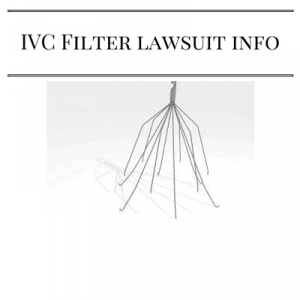Various implanted medical devices, including pacemakers, artificial knee or hip replacements, stents, or IVC filters, can be defective. For individuals dealing with a defective device, can proceed with legal action if the device causes an injury. The device can be defective due to the design, the manufacturing or the marketing. Regardless, the company that manufactured the product has a duty to the end of care for its customers.
Device Recalls and Who Initiates Them
For those who are dealing with a medical device, it helps to know who can recall said device. The first step is the Food and Drug Administration, or FDA, who are in charge of overseeing medical device manufacturers. When a device is defective to the point where removal or correction is required, the FDA can initiate a recall.
Corrections can be completed where the device is sold. For example, a device that needs a software upgrade can be addressed at the physician’s office. Removal is necessary in cases like hip replacements that have a design defect and have to be removed from the patients who had them put in through a surgical procedure.
The medical device manufacturer and distributor can also initiate recalls. If they initiate the recall, they notify the FDA and the FDA then evaluates the strategy to handle the issue and whether the problem violates laws set forth by the administration.
Know the Laws and Stay Up-To-Date
There are different ways to stay current on recalls and changes to protocol regarding implanted medical devices. The FDA maintains a recall page with information on safety alerts, market withdrawals and other information related to medications available in today’s marketplace. Email notifications and recall alerts are available, as are alerts via Twitter and the FDA’s handle, @US_FDA. The FDA also offers safety podcasts, which are available for users to subscribe to and gain up-to-the-minute information regarding new recalls, safety information about drugs and other issues.
Individuals dealing with pain and or discomfort as a result of an implanted medical device can check with their doctor during a visit to gain medical perspective on the issue. They can also check with the FDA. For those hoping to pursue compensation for injuries, it is helpful to contact an attorney that specializes in cases regarding defective medical devices.
Legal counsel like McGowan, Hood & Felder, LLC., in South Carolina are well-versed in the legalities of pursuing compensation for the injury related to a defective medical device that was implanted. They can help clients determine the best path to follow when they are dealing with pain and injury related to such a device.
Contacting a lawyer is a good first step in the process to pursue compensation for pain and suffering, particularly if the issue also required additional surgeries to remove or replace the medical device. For devices that are already involved in litigation and are still on the market, individuals who have had these same devices implanted should get in touch with a lawyer to find out their best approach to moving forward.
IVC Filter Use in Spinal Cord Injuries Next To Nil
Latest IVC Filter News
Use of the IVC Filter in the US DeclinesIVC Filter Use in Spinal Cord Injuries Next To Nil

No comments:
Post a Comment